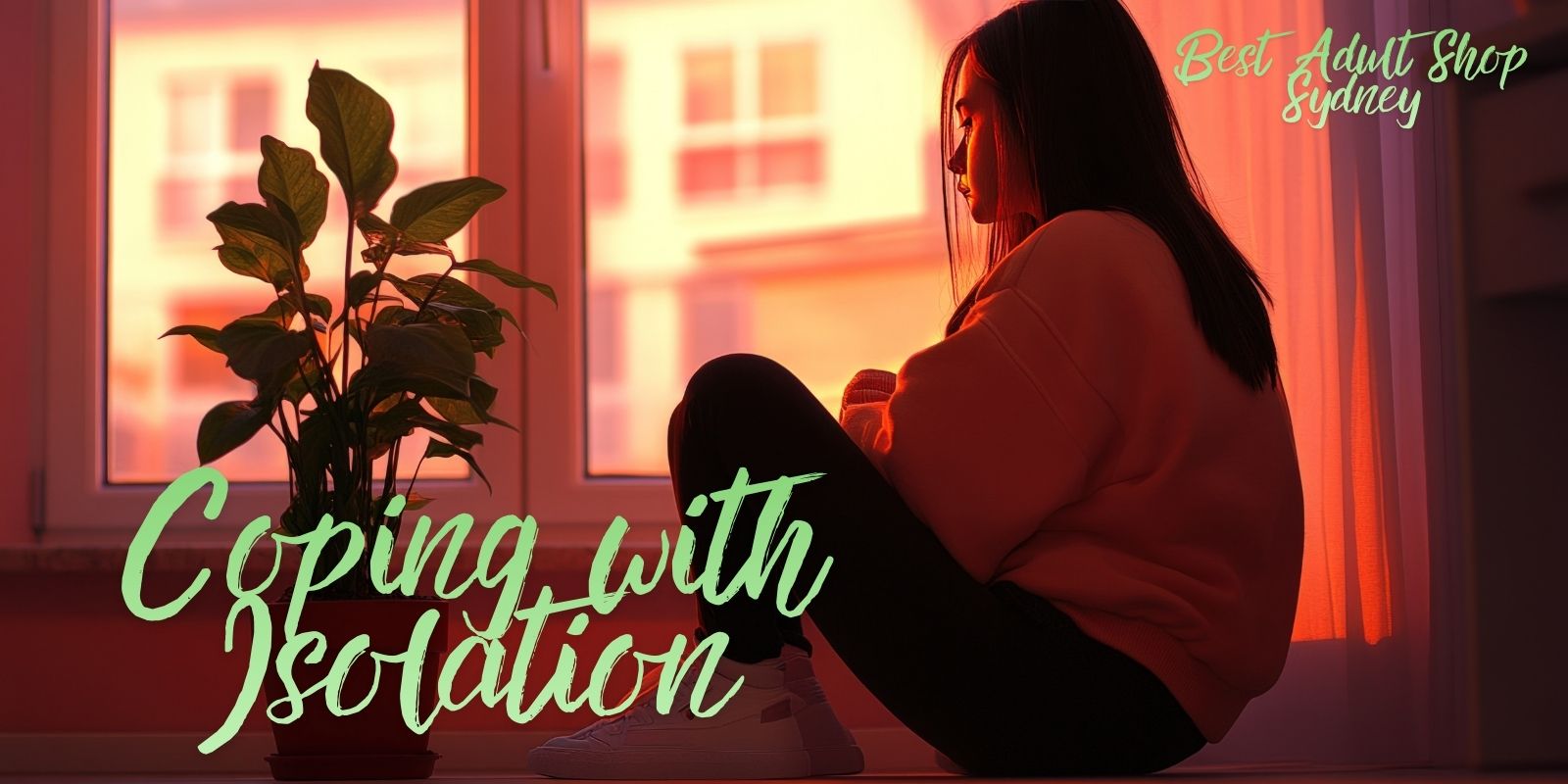Coping with Isolation in Everyday Life
Coping with isolation is a deeply human experience that can quietly reshape how you relate to yourself and the world around you. It often develops slowly, settling into daily life through disrupted routines, emotional distance, or prolonged periods of uncertainty. While isolation can look invisible from the outside, internally it may feel heavy, disorienting, and exhausting. This article explores compassionate, realistic ways to navigate isolation with care, balance, and self-trust, while gently rebuilding connection, stability, and emotional wellbeing over time.
Coping with isolation is not about forcing productivity or positivity. It is about creating safety, nourishment, pleasure, routine, and connection in small, sustainable ways. Through acceptance, self-care, meaningful habits, and gentle outreach, isolation can become a period of grounding and emotional rebuilding rather than depletion.
Table of Contents – Coping With Isolation
- Accepting Change While Coping with Isolation
- Letting Go of Unrealistic Expectations
- Taking a Break from the News
- Finding Moments to Relax
- Nourishing Your Body and Mind
- Allowing Yourself a Treat
- Staying Hydrated Every Day
- Reaching Out to Others While Coping with Isolation
- Making Time for Meaningful Hobbies
- Exploring Intimacy While Coping with Isolation
- Key Takeaways
- Frequently Asked Questions
- Your Path Back to Connection and Balance

Accepting Change While Coping with Isolation
Isolation often arrives alongside change, and that combination can feel especially destabilizing. Familiar routines disappear, social rhythms shift, and your sense of normal may no longer apply. When coping with isolation, it is common to feel mentally foggy, emotionally flat, or disconnected from motivation. These reactions are not personal shortcomings. They are natural nervous system responses to uncertainty and loss of structure.
Accepting change does not mean approving of it or pretending it feels comfortable. It means acknowledging that life looks different right now and allowing yourself to adjust at a realistic pace. The body and mind need time to recalibrate when predictability disappears. Slowing down is often a sign of adaptation rather than failure.
Anxiety tends to increase when you fight against the present moment. Gently naming what has changed can reduce internal resistance. Coping with isolation becomes more manageable when acceptance replaces self-judgment and allows space for stability to return gradually.
Letting Go of Unrealistic Expectations
During isolation, many people hold themselves to standards that no longer fit their emotional reality. You may expect the same productivity, focus, or emotional resilience you had before circumstances shifted. When coping with isolation, this pressure often leads to frustration and guilt rather than motivation.
Your mental and emotional systems are working harder than usual. Fatigue, reduced concentration, and emotional sensitivity are signs of strain, not weakness. Allowing yourself to lower expectations creates room for recovery and self-compassion. Rest becomes restorative rather than something you feel you must justify.
Letting go of rigid expectations does not mean giving up on growth or responsibility. It means adjusting your definition of success to include care, patience, and emotional honesty. Coping with isolation becomes gentler when you allow yourself to be human rather than perfect.
Taking a Break from the News
Constant exposure to news can intensify fear and emotional overwhelm, especially during periods of isolation. Headlines and updates keep the nervous system in a heightened state of alert, making it difficult to relax or feel grounded. When coping with isolation, this constant stimulation often amplifies anxiety and exhaustion.
Limiting news consumption is not about disengaging from reality. It is about protecting your mental space. Choosing specific times to check updates and relying on trusted sources allows you to stay informed without being consumed by distressing information.
Health organizations recommend mindful media habits during stressful periods, including guidance on loneliness and social isolation tips for staying connected. Reducing news intake creates room for calm, clarity, and emotional balance.
Finding Moments to Relax
Stress does not exist only in the mind. It lives in the body through tension, shallow breathing, and restlessness. When coping with isolation, these physical signals can build quietly until burnout or emotional numbness appears. Relaxation supports nervous system regulation and emotional resilience.
Simple practices can bring meaningful relief. Gentle stretching, slow breathing, or sitting quietly with calming music can lower stress levels quickly. These moments do not need to be long or structured to be effective.
Relaxation is not a luxury reserved for calm times. It is a necessity during emotional strain. Coping with isolation improves when rest is woven into daily life as a form of care rather than an afterthought.
Nourishing Your Body and Mind
What you eat has a direct impact on how you feel emotionally and mentally. During isolation, appetite and eating patterns often change, sometimes leading to irregular or less nourishing meals. When coping with isolation, this can affect energy, mood, and cognitive clarity.
Balanced meals help stabilize blood sugar and support emotional regulation. Simple, consistent choices are more sustainable than restrictive plans. Including protein, fibre, and regular hydration creates a foundation for mental steadiness.
Resources focused on emotional wellbeing, such as guidance on coping with loneliness, emphasise physical care as a cornerstone of mental resilience during isolated periods.
Allowing Yourself a Treat
Small pleasures can provide comfort and emotional grounding when days feel heavy or repetitive. Allowing yourself a treat during isolation is not indulgent. It is a way of acknowledging your needs and offering kindness to yourself.
Guilt around enjoyment is common, especially during difficult times. However, complete restriction often increases stress rather than reducing it. Moderation allows pleasure without overwhelm or shame.
Coping with isolation becomes more humane when you allow moments of comfort to exist alongside responsibility. These small joys remind you that life still holds warmth and meaning.
Staying Hydrated Every Day
Hydration is a foundational aspect of physical and emotional health. Dehydration can contribute to fatigue, irritability, and difficulty concentrating. When coping with isolation, it is easy to overlook basic needs like drinking enough water.
Simple habits, such as keeping a bottle nearby or pairing hydration with meals, support consistency. Herbal teas or naturally flavored water can make hydration more appealing without effort.
Drinking water is a grounding practice that reconnects you to your body. In uncertain times, these small acts of care provide stability and reassurance.
Reaching Out to Others While Coping with Isolation
Human connection remains essential, even when physical proximity is limited. Isolation can distort perception, making it feel as though reaching out is burdensome. In reality, connection often benefits both people involved.
Short interactions matter. Texts, calls, or video chats create shared presence and emotional support. These moments remind you that you are still part of a wider social world.
Shared cultural experiences, such as events connected to Sydney Mardi Gras, can reinforce belonging and visibility, even when engagement is reflective or virtual.
Making Time for Meaningful Hobbies
Hobbies bring structure, focus, and emotional relief during isolation. When days lack variation, meaningful activities create rhythm and purpose. They help shift attention away from constant worry or emotional fatigue.
Enjoyment matters more than productivity. Reading, creating, learning, or practical tasks can restore a sense of agency and curiosity. These activities reconnect you with aspects of your identity beyond stress.
Personal development hobbies, including working on professional goals such as refining a professional cover letter, can quietly rebuild confidence while maintaining emotional balance.
Exploring Intimacy While Coping with Isolation
Intimacy does not disappear during isolation. It changes form. Reconnecting with your body through pleasure can be grounding and affirming, helping you feel present and alive.
Solo exploration is a valid form of self-care. Products designed for comfort and discretion, such as wearable vibrators, can support embodied connection and enjoyment.
Pleasure activates relaxation responses in the nervous system. Coping with isolation includes allowing joy and comfort in safe, respectful ways that honour your body and emotional needs.
Key Takeaways
- Isolation requires patience, acceptance, and self-compassion.
- Physical care supports emotional resilience.
- Connection remains possible through small, consistent efforts.
- Pleasure and rest are valid forms of self-care.
- Gentle routines help rebuild trust and stability.

Frequently Asked Questions – Coping With Isolation
What is the first step in coping with isolation?
Creating a simple, consistent daily routine provides structure and emotional safety, helping reduce overwhelm and uncertainty.
Is it normal to feel exhausted while isolated?
Yes. Emotional stress places significant demands on the nervous system, often resulting in fatigue and reduced motivation.
How can I stay connected if I live alone?
Regular check-ins, shared activities online, and maintaining familiar relationships help sustain emotional connection.
Can pleasure really support emotional wellbeing?
Pleasure promotes relaxation and grounding, supporting nervous system regulation and emotional balance.
When should I seek professional support?
If isolation leads to persistent distress or impaired functioning, professional mental health support is strongly recommended.
Your Path Back to Connection and Balance
Coping with isolation is not a linear journey. Some days will feel heavier than others, and that variability is part of being human. By tending to your body, allowing rest, nurturing connection, and welcoming moments of pleasure, you create a foundation for emotional resilience. Isolation does not define you. With patience and care, it can become a period of reflection, self-trust, and renewed balance that supports your wellbeing far beyond this moment.


